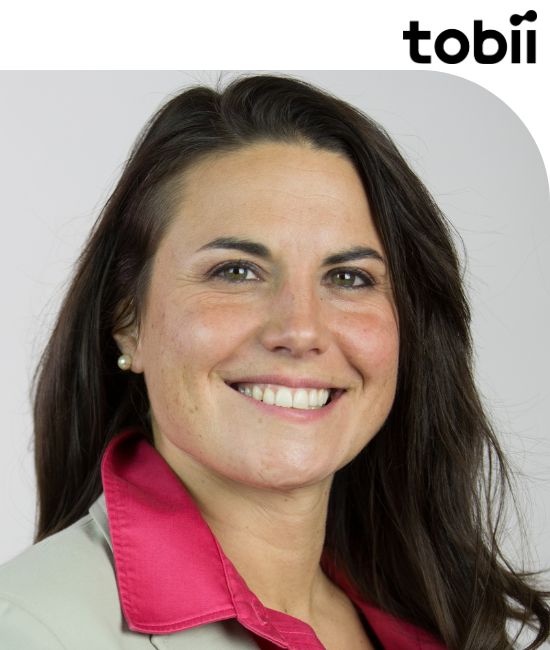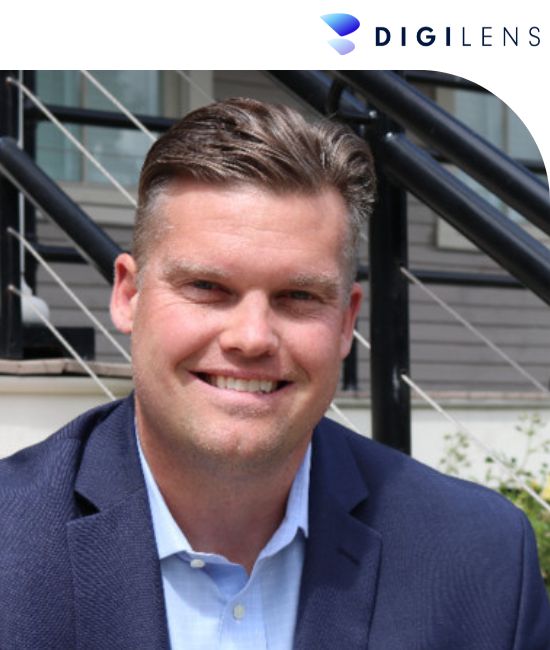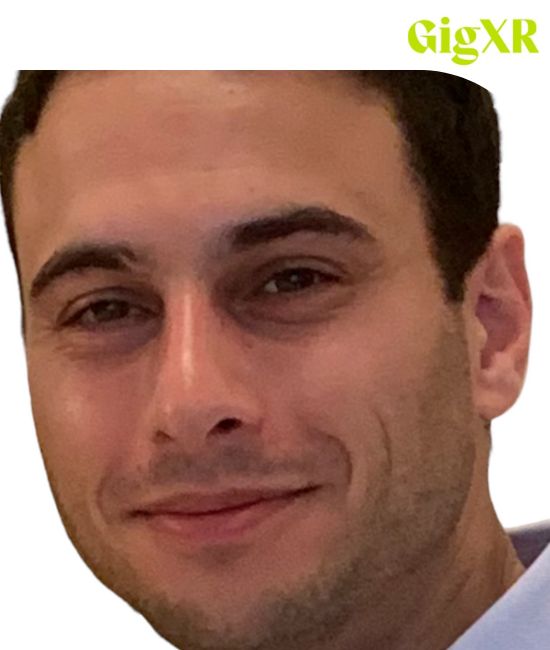12:00 PM - 12:25 PM
Description
This session will explore how haptic feedback can elevate the user experience in XR content.
Beginning with an overview of the benefits of haptic feedback, this session will delve into the science
behind the bHaptics' devices and discuss the design, implementation, and application of haptic
feedback to enhance user engagement, with a special emphasis on real-world case studies that
showcase the technology's capabilities.
The session will provide attendees with practical insights and actionable strategies to maximize the
potential of haptic feedback in their own XR content with bHaptics’ haptic devices.
Speakers

12:00 PM - 12:25 PM
Description
It is indisputable that technology evolves faster than the ethical use of that technology. This results in inequitable systems that benefit the majority who developed the system while excluding the minority who were outside the scope of participation.
Blockchain and Web3 technologies must be available and usable by all individuals, regardless of their physical or cognitive abilities. However, because of the decentralized approach to development, no one appears to be accountable for making this happen. Making Blockchain and Web3 technologies accessible to individuals with disabilities can increase the potential user base for these technologies, creating new market opportunities. Blockchain and Web3 will face many regulatory hurdles. Making them accessible will remove a regulatory objection in countries that have strong accessibility laws. Many technologies in use every day, such as Siri and Speech to Text, were initially invented for people with disabilities. These are known as curb cuts, named for the dips in street corners that allow wheelchair users to get from one side to the other without assistance however 99 % of the users are not disabled. Including more diversity in developers, including individuals with disabilities, can lead to new and innovative solutions, approaches, and curb cuts that may not have been considered otherwise. Finally, Improving accessibility and disability inclusion will improve the experience for all users, not just those with disabilities, which will lead to increased adoption and usage of Blockchain and Web3.
Speakers

12:00 PM - 12:25 PM
Description
The landscape around us is changing - VPS solutions open possibilities for location-based experiences for tourists, shoppers, sport event visitors - everyone who is out and about. How to tackle that challenge and make those experiences engaging - Juha Lystilä and Pablo Colapinto will discuss this in their presentation.
Speakers


12:30 PM - 12:55 PM
Description
Since 1995, Intuitive has advanced minimally invasive care through advanced robotic systems, end-to-end learning, and value-added services. As one of the pioneers of robotic-assisted surgery, our da Vinci surgical system is used today by surgeons to deliver a less invasive approach to many types of surgery. Through more than 10 million surgeries, Intuitive has become a leader in surgical robotics, increasing the adoption of minimally invasive surgery. XR has been a core technology for Intuitive from the beginning and is continuously innovating to further enhance minimally invasive care. Surgical robotics means more than technology in an OR. Education and training for surgeons and staff are critical for delivering quality surgical care.
This talk will discuss Intuitive augmented reality and virtual reality products that helped customers in 69 countries provide minimally invasive care, improve patient outcomes by extending and improving surgical skills, enhance skill development, and an intuitive experience through a human-centered approach.
Speakers

12:45 PM - 01:10 PM
Description
Witness the dawn of a new age of Augmented Reality as Qualcomm Technologies, Inc. addresses some very real pain points to mainstream XR adoption today. See how the latest phase of Snapdragon™ Spaces XR Developer platform aims to onboard and activate an untapped market of mobile developers as well as enabling XR developers with the ease of familiar traditional input models. This talk lays the groundwork for the rest of the Snapdragon Spaces activations throughout the show, you won’t want to miss it.
Speakers

01:15 PM - 01:40 PM
Description
Dispelix develops and delivers elegant and high-performance see-through waveguides that are used as transparent displays in extended reality (XR) devices. We are the trusted and visionary partner of the most demanding customers in XR, and enable the industry leaders to redefine the form, function, and feel of XR wearables. Join our Co-founder & CEO, Antti Sunnari, as he discusses how together with Dispelix you can realize your product visions from waveguide design to mass production.
Speakers

01:25 PM - 01:50 PM
Description
Our current landscape is filled with promising, yet disjointed technologies, each showcasing their incredible potential. But when we merge AI + XR, we open doors to a future of learning never before imagined. This talk will delve into the exciting fusion of immersive, adaptive learning environments powered by AI-driven avatars. Envision a world where we finally have the tools for true personalized learning, continuous real-time assessment, tailored career development, and secure credential verification. The opportunities are limitless for those looking to build a groundbreaking future for learning. Be a part of this revolutionary journey.
Speakers

01:25 PM - 01:50 PM
Description
Jason McGuigan, Lenovo’s Head of Virtual Reality, will discuss how the current avalanche of AI powered services are acting as a major force multiplier for XR developers. With the launch of the Lenovo ThinkReality VRX, Jason will discuss how some of Lenovo’s software partners are adopting these technologies to enhance their products and deliver profound new experiences to their customers.
He will share examples of these tools in action and discuss how the adoption of GAI will allow smaller teams to do more, reduce the costs of development, and speed the time to market. The results of these advances will be nothing short of revolutionary as enterprise organizations will be able to solve for a greater variety of use cases in higher quality, more cost-effective VR solutions.
Speakers

01:25 PM - 01:50 PM
Description
With various companies announcing their support for WebXR, there is an acute need to understand its advantages and disadvantages. How does performance and visual fidelity compare? How do you monetize? Can you even build big projects on the web?
In their talk, Jonathan Hale, CEO & founder of Wonderland, and Lydia Berry, COO of “The Fitness Resort” will answer your pressing questions about VR, AR and MR on the web.
Speakers


01:25 PM - 01:50 PM
Description
Recently, there has been, and continues to be, a flurry of activities around AR and the Metaverse. How these domains intersect and unfold over time is still very much in the early stages. What is clear, however, is that the “on-ramp” or gateways into the Metaverse starts with the ability to perceive the physical and digital worlds simultaneously. Many technologies and devices are needed to enable the true immersion and first and foremost is the ability to overlay the digital domain onto the physical space. In this talk we will discuss these aspects and delve deeply into near-to-eye display technologies that allows uses to coexist in the physical and digital domains.
Speakers

01:25 PM - 02:20 PM
Description
Will the next version of World Wide Web be semantic? 3D? decentralized? intelligent? immersive? or a mixture of everything (a.k.a. metaverse)? And how can we get there?
Speakers






01:40 PM - 02:05 PM
Description
Coca-Cola has always been in the experience-making business — the simple pleasure of drinking an ice-cold Coca-Cola is timeless and ubiquitous in its appeal. But how does a company with a 130-year-old brand and physical products grounded in the analog world translate and transform that experience into the digital domain?
Join Benny Lee, global manager of digital design at Coca-Cola, in this fascinating session to discover:
- How Coca-Cola continues to craft authentic and meaningful experiences with innovative 3D technology and digital touchpoints covering AR/VR, NFT, and Metaverse.
Speakers

01:45 PM - 02:10 PM
Description
In this panel discussion, we will talk to three XR champions and leaders who have led successful large-scale deployments at Wal-Mart, Axon, and the Veteran’s Health Administration. While we often are caught up in what the future of XR may be, many need to realize the power that XR is bringing to major organizations today.
You will hear how they are using XR, the results of using VR in their organization, the challenges they faced, and how they scaled their programs. The future is bright for XR, but it is already radically changing how we learn, work, and heal.
Speakers




01:55 PM - 02:20 PM
Description
Construction is a complex and messy process, combining millions of individual components - all needing to be positioned in the exact right place with mm-level accuracy. However, the construction process has largely remained unchanged for thousands of years. A group of people design a building, listening to every wish and elaborate desire coming from the Owner, and then they hand the design over to thousands of other people to actually build it, without any understanding of how this design fits the real world. It’s kind of like building a massive jigsaw puzzle where thousands of people are responsible for one piece or another, and no one really knows how they all fit together. This waterfall process leads to building things up only to tear them down immediately after and then build them right back again - just moved over by 1ft - something the construction industry spends over $280B per year doing. This is simply not sustainable, for the industry, for the stakeholders, and most importantly - for the planet. With nearly 40% of the world’s Carbon emissions being contributed by the construction industry, transformation is desperately needed.
And that’s exactly what Trimble is working to do. As a leader in high-accuracy positioning technologies, Trimble has a long standing history of bringing precision to the construction industry - helping to fit all those puzzle pieces together. But we see the opportunity to do more. Since 1997, when we filed our first XR patent, Trimble has been transforming the way the world works by connecting the physical and digital worlds. Now, we’re working to change this archaic narrative, by empowering everyone in construction to visualize, interpret, and action the design through Augmented and Mixed Reality technologies in the field. From catching design mistakes by viewing 3D models on any worker’s iPad, to being more efficient by controlling the most precise Total Station with nothing more than your gaze, we are improving communication and collaboration around design intent, enabling more efficient and sustainable projects. Follow us on this journey as we outline how Extended Reality technologies are revolutionizing the way the construction industry operates today, tomorrow, and for decades to come.
Speakers


01:55 PM - 02:20 PM
Description
Coming Soon!
Speakers



01:55 PM - 02:20 PM
Description
This casual discussion outlines the original mission of holoride from 2015, with our co-founder's vision spun out of AUDI Innovation. Our longstanding partnerships with HTC and Schell Games paint an immersive journey building a solid platform together pairing real time car data, open map data and original content creation. We will explore the successes and challenges within the VR industry that helped us reach our goal of an Elastic SDK, the onboarding of more strategic partners, our RIDE Token, scaling a diverse company, launching a consumer facing product store and rolling this out both in Germany and the US. So what’s in store for the next 5 years, 12 years -- and, the long game of mobility, transportation and media & entertainment? Come join the lively conversation.
Speakers


01:55 PM - 02:20 PM
Description
Are you staying ahead of the curve on the immense potential of VR and Eye Tracking? Join us for a presentation to explore the latest trends and success stories of how these cutting-edge technologies have transformed various industries. Discover how VR and eye tracking are revolutionizing areas such as brain health assessments and therapy, vision care, aviation training, and more with real-world examples and practical applications that deliver accurate and efficient solutions.
Speakers


01:55 PM - 02:20 PM
Description
Creating a new reality with Snapdragon Powered Devices: Join Said Bakadir, Sr Director of XR Product Management at Qualcomm Technologies, Inc. as he leads a lively discussion with XR OEMs about the challenges they face and the successes they have achieved in XR.
Speakers




02:00 PM - 02:25 PM
Description
Analog simulation is broadly accepted in healthcare. Given the high costs of building and running a simulation center, facilities are generally in developed nations’ urban centers.
XR is fundamentally changing the dynamic: Learners are accessing expertise around the world in the mediverse. Traditional educational institutions are able to share their best practices in new and exciting ways.
The results? It should be more well trained healthcare institutions in more places around the world leading to better outcomes for patients globally.
Speakers


02:10 PM - 03:05 PM
Description
Though tech giants like Netflix, Microsoft, and Google are pressing pause on metaverse ambitions in light of economic headwinds and spiraling hype cycles, spatial data is powering virtual environments that drive real benefits and practical utility for enterprise functions and consumer applications. Yet creating an immersive, effective, and agile spatial lake—deep enough to power the metaverse—requires three key functional layers to (1) create and manage, (2) build and operate, and (3) deliver and interact at scale. In this panel, spatial computing expert David Randle (Global Head of Spatial Computing GTM at AWS) moderates a panel with meta-world-makers Josh Rush (CEO at Surreal Events), Ryan Smith (Head of Product at RapidCompact by DGG), and Dan O’Brien (GM Americas at HTC VIVE) to discuss the formula for creating a “Spatial Lakehouse” solution strong enough to make the metaverse matter to employees, clients and consumers alike.
Speakers



